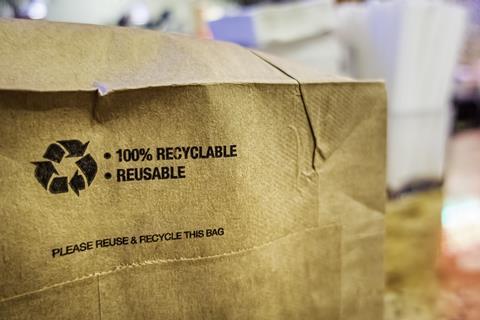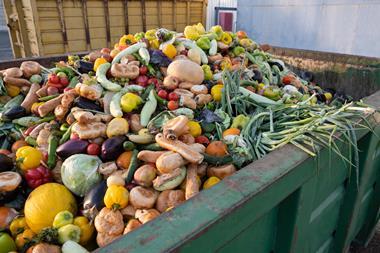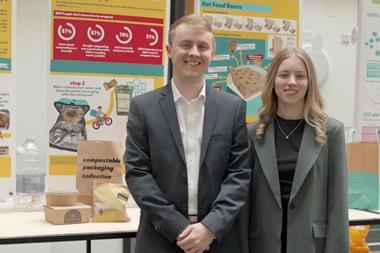It’s official: sustainability is still a priority for UK shoppers despite the growing financial pressure they’re facing. But a significant number want help from retailers on making planet-friendly choices. So how can retailers help?
British shoppers want supermarkets and other retailers to make it easier for them to shop sustainably as the cost-of-living crisis deepens, an exclusive poll for Japan Tobacco International (JTI) UK has revealed.
More than half (56%) of consumers want retailers to offer more promotions on sustainable products and a third (33%) would like them to offer advice on how to shop sustainably on a budget, as well as offering tips on how to reduce food waste.
The poll of 1,000 people – carried out on behalf of JTI UK by Lumina Intelligence in August 2022 – reveals that most feel sustainability should be prioritised despite the downturn. One in four (24%) says sustainability should be a priority for retailers and manufacturers. Twenty nine per cent say that while some sacrifices are acceptable, the environment should remain a key focus.

Sustainability influences retailer choice for 51% of shoppers
“This is proof that retailers and suppliers can’t afford to take their eye off the ball when it comes to sustainability,” says JTI sustainability director Ruth Forbes. “If we want people to return to sustainable shopping habits and adopt new ones, it’s up to all of us to reduce environmental impact across product portfolios.”
Two thirds (65%) have switched supermarkets since the start of the cost-of-living crisis, with a third (33%) starting shopping at a discounter, 16% swapping to an alternative big four supermarket and 12% shopping around at multiple retailers. Environmental and ethical factors have influenced choice of retailer for more than half (51%) of shoppers.
“Shoppers are really feeling the strain at the moment,” adds Forbes. “While the research shows that sustainability has taken a back seat for some, we expect this to be temporary. It’s clear that most consumers expect businesses to commit to ambitious sustainability targets and stick to them in good times and bad.”
Reducing emissions by the equivalent of 1,315 transatlantic flights a year
Forbes points to JTI’s carbon emissions reduction targets, which are in line with the 2015 Paris Agreement and aligned with the Science-based Targets Initiative, as proof of the company’s commitment.
“We have significantly strengthened our emissions reductions targets,” she explains. “By 2030, we aim to reduce emissions in our own operations (or scope one and two emissions) by 47% and become carbon neutral. By the same time, we aim to cut emissions associated with our goods and services (scope three emissions) by 28%. By 2050, we aim to be net-zero across the entire value chain. This will be achieved against a 2019 baseline.”
By 2025, JTI will be running its UK operations on 100% renewable energy and by 2030 it will have cut its overall energy use by a fifth. The company, which powers its UK head office from wind and hydro sources, began transitioning its salesforce to plug-in hybrid cars in 2021 and will begin the switch to fully electric cars in 2024, saving 776 tonnes of carbon each year by 2030 (the equivalent of 1,315 flights from London to New York).1

Switching to 100% recyclable or reusable packaging use
That’s not all. Within the next three years, 85% of JTI’s packaging will be reusable or recyclable and by 2030, all of it will be. The company is also working to eliminate waste from its UK merchandising solutions, maintaining and repairing gantries for retailers free of charge and guaranteeing that all fixtures are recycled when they reach the end of their lifecycles.
The moves JTI is making are revealed as crucial green considerations for consumers in the results of the Lumina research. When asked about what environmental and ethical factors are important for them, 26% of the people polled cited options such as reusable or recyclable packaging and 24% cited environmental practices such as renewable energy use.
“This shows that most consumers understand the steps humankind needs to take to avert the worst effects of climate change and that people still want to make sustainable shopping choices in spite of the financial pressure they are under,” says Forbes.
“By paying close attention to the scientific evidence and listening carefully to what shoppers want, JTI is on course to deliver significant improvements to our environmental performance. We’re hoping our retail partners will also help shoppers to make real, positive differences to the planet.”
Source
[1] Based on emissions of 590 kg of CO2e per flight – Source: https://travelnav.com/emissions-from-london-united-kingdom-to-new-york



















